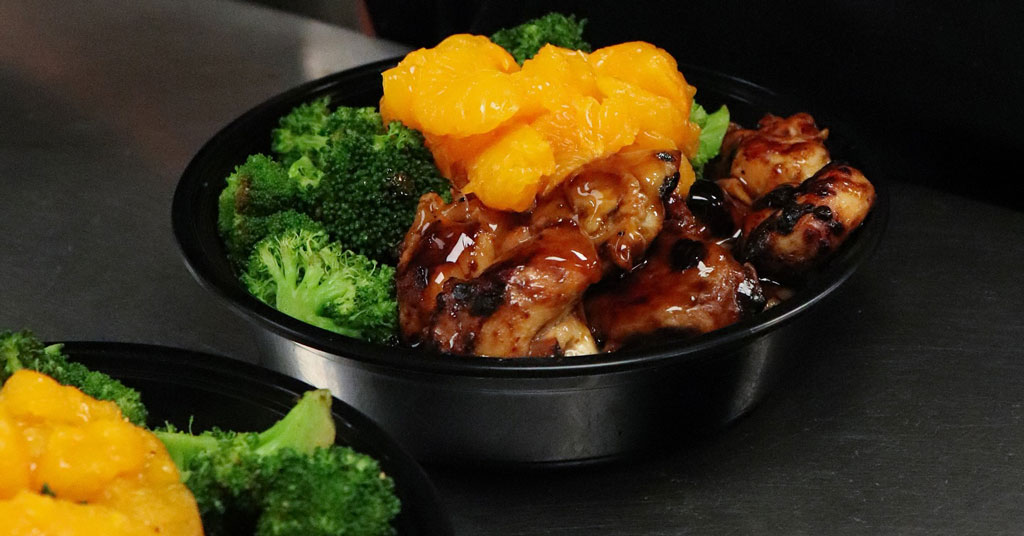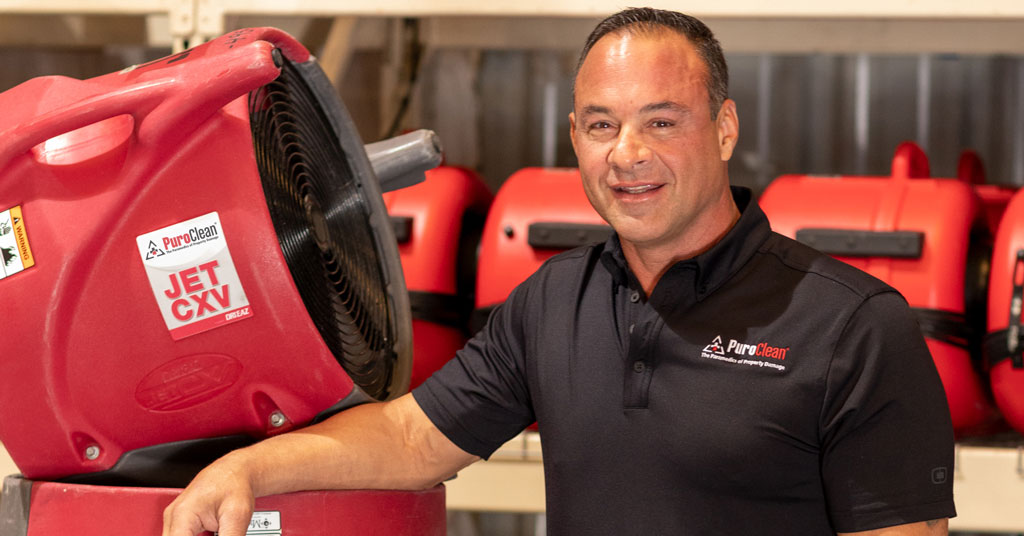Franchise Articles
Browse our selection of franchise articles and features to help further your knowledge in opening and operating a franchise business. Our exclusive features cover the franchise growth, operations, legal, leadership, marketing, real estate, and technology site of the franchise business. Written by the editorial team that produces Franchise Update Magazine and Multi-Unit Franchisee Magazine, the franchise industries premier magazines.
Army veteran applies discipline, leadership, and communication from the military to franchise ownership
- Kevin Behan
- 978 Reads 4 Shares
Longtime Little Caesars franchisee discusses how the skills developed in the military shaped his development as a business owner
- Paul Jones
- 1,056 Reads 1 Shares
New locations are planned for the Ohio cities of Dayton, Columbus, and Cincinnati
- M. Scott Morris
- 994 Reads 5 Shares
Give employees the authority to make fast decisions that benefit the customer on the spot
- John Tschohl
- 836 Reads 2 Shares
More than a dozen new franchisor, franchisee, and supplier leaders will serve on the IFA Board of Directors
- International Franchise Association
- 1,131 Reads 1 Shares
Stacked Hospitality's Joe Sloboda, Stanley Tsung, and Gustavo Bursztyn will bring six units to Fort Lauderdale and surrounding suburbs
- M. Scott Morris
- 1,088 Reads 3 Shares
Multi-unit franchisees share thoughts on finding and retaining staff through compensation, culture, career development
- Kevin Behan
- 1,536 Reads 2 Shares
Service brand deals continue to grow through Autumn
- Kevin Behan
- 1,309 Reads 2 Shares
Veteran and his wife enjoy the benefits of a semi-absentee business model while preparing for retirement
- Kevin Behan
- 1,375 Reads 8 Shares
Chris Pelnik plans to develop studios throughout North Carolina
- M. Scott Morris
- 1,675 Reads 6 Shares
Air Force veterans turn to franchising to serve Slidell, Louisiana, community with new Rita's location
- Wendy Kunz
- 1,505 Reads 23 Shares
SNAP shoppers spend an average of $832 on groceries monthly, according to a report from Numerator
- M. Scott Morris
- 2,037 Reads 4 Shares
Jay and McKay Bickmore grew up in a family that owned more than 100 Subway restaurants
- M. Scott Morris
- 1,063 Reads 1 Shares
Restaurant franchisees reflect on adjustments they made during the pandemic and how some changes are still in place
- Kevin Behan
- 1,659 Reads 4 Shares
PuroClean Franchisee Transitions from Service in Navy to Multi-Unit Ownership
- Kevin Behan
- 1,403 Reads 8 Shares
Having a proven business model, training, and support with franchising can overcome a lack of experience in a given field
- Wanda Hoegren
- 1,699 Reads 5 Shares
Nearly 50 years after opening their first Taco John's, the Stilwell family prepares to add another chapter
- M. Scott Morris
- 1,437 Reads 2 Shares
According to a survey, 57% of Gen Z want to customize products, and they're 23% more likely to switch brands out of boredom
- M. Scott Morris
- 2,220 Reads 2 Shares
Chris Wilson and Gary Andrews will expand in New Mexico, Texas, and Arizona
- M. Scott Morris
- 1,922 Reads 1 Shares
How multi-unit restaurant franchisees are managing minimum wage hikes
- Eddy Goldberg
- 2,331 Reads 44 Shares
Credit limits fell in 46 of 50 states from Q2 2024 to Q2 2025, according to a WalletHub report
- M. Scott Morris
- 1,101 Reads 1 Shares
Franchising is a great option for a career change, but prospective owners must first ask themselves these important questions
- Amy Addington
- 2,241 Reads 13 Shares
New digital storytelling initiative amplifies the personal stories and community contributions of franchise business owners across America
- Kevin Behan
- 2,236 Reads 2 Shares
The group, led by franchising veteran Barry Dubin, is on its way to operate 70 Qdoba units across Alaska, Colorado, Nevada, New Mexico, and Utah
- M. Scott Morris
- 1,837 Reads 1 Shares
According to research, 66% of Gen Alpha parents say their child prefers shopping in-store
- M. Scott Morris
- 2,323 Reads 2 Shares
The move in Provo, Utah, is part of a five-unit development agreement
- M. Scott Morris
- 1,624 Reads 2 Shares
Restaurant franchisees frequently speak to other owners, regardless of industry, to share advice and improve their operations
- Kevin Behan
- 1,354 Reads 1 Shares
Washington, D.C., Hawaii, and New Mexico are among the hardest hit, according to WalletHub
- M. Scott Morris
- 1,498 Reads 1 Shares
Husband-wife franchisees enjoy finding employment opportunities for members of the local community
- Kevin Behan
- 1,794 Reads 5 Shares
Some seasonal franchises offer complementary services to provide owners with year-round revenue streams
- Michael Moorhouse
- 1,674 Reads 5 Shares
| Page 1 of 167 | ^ Return to Top | 1 2345Next |
| ADVERTISE | SPONSORED CONTENT |
FRANCHISE TOPICS
- Multi-Unit Franchising
- Get Started in Franchising
- Franchise Growth
- Franchise Operations
- Open New Units
- Franchise Leadership
- Franchise Marketing
- Technology
- Franchise Law
- Franchise Awards
- Franchise Rankings
- Franchise Trends
- Franchise Development
- Featured Franchise Stories
Subscribe
| ADVERTISE | SPONSORED CONTENT |


































 The franchise opportunities listed above are not related to or endorsed by Franchising.com or Franchise Update Media Group. We are not engaged in, supporting, or endorsing any specific franchise, business opportunity, company or individual. No statement in this site is to be construed as a recommendation. We encourage prospective franchise buyers to perform extensive due diligence when considering a franchise opportunity.
The franchise opportunities listed above are not related to or endorsed by Franchising.com or Franchise Update Media Group. We are not engaged in, supporting, or endorsing any specific franchise, business opportunity, company or individual. No statement in this site is to be construed as a recommendation. We encourage prospective franchise buyers to perform extensive due diligence when considering a franchise opportunity.